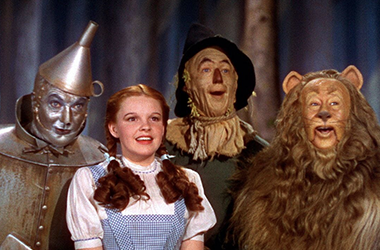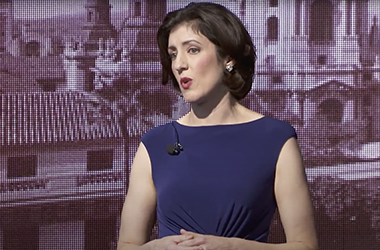Mothers and Fathers in the Land of Oz

 When my husband and I read The Wizard of Oz to our daughter several years ago, we discovered that L. Frank Baum wrote a sequel, The Marvelous Land of Oz, in 1904 and it was included in the old book we were using so we read that to her too.
When my husband and I read The Wizard of Oz to our daughter several years ago, we discovered that L. Frank Baum wrote a sequel, The Marvelous Land of Oz, in 1904 and it was included in the old book we were using so we read that to her too.
My husband ended up being the one on duty the night he finished the last chapters of The Marvelous Land of Oz. When we woke up the next morning, he brought me the book and said, “You have to read this passage.”
Scene: Scarecrow, now the king, and his friends are returning to the Emerald City after a journey.
As they passed the rows of houses they saw through the open doors that men were sweeping and dusting and washing dishes, while the women sat around in groups, gossiping and laughing.
“What has happened?” The Scarecrow asked a sad looking man with a bushy beard, who wore an apron and was wheeling a baby-carriage along the sidewalk.
“Why, we’ve had a revolution, Your Majesty – as you ought to know very well,” replied the man; “and since you went away the women have been running things to suit themselves. I’m glad you decided to come back and restore order, for doing housework and minding the children is wearing out the strength of every man in Emerald City.”
“Hmm! said the Scarecrow thoughtfully, “If it is such hard work as you say, how did the women mange it so easily?”
“I really do not know,” replied the man with a deep sigh. ‘Perhaps the women are made of cast-iron.”
I laughed of course – and marveled at the way that short scene and bit of dialogue so masterfully draws attention to and challenges traditional gender roles.
Baum flips the roles and conjures an image of women sitting around gossiping and laughing and men wheeling baby carriages and sweeping. Readers laugh at the absurdity, but it is the fact that we find this absurd that shows us the real absurdity of traditional roles that have women doing a disproportionate amount of the family work.
Plus, Baum has the women staging a “revolution” in order to get their leisure time. More than one woman I know has felt she had to stage a “revolution” in her own home to get a fairer sharing of the family work.
Finally, Baum’s men, the stereotypically “strong” gender, are wearing out from the work and suggesting maybe the “women are made of cast-iron.” All of which draws attention to the fact that caring for family is really hard work that often goes unnoticed.
If Baum could think it up in 1904, by 2011 we ought to be able to conjure up a real-life Marvelous Land of Oz where mothers and fathers share the sweeping and minding of the children and both have some time to sit around gossiping and laughing too.
Kristin
- Share the passage with friends or your spouse. What do you think Baum is trying to say here?
- Often the best way to break down our own subconscious stereotypes is to be exposed to people who are counter-stereotype, whether they are real or made-up. Can you think of other fictional characters that break the mold of the “traditional” father or mother?



I’ve always thought Baum was a bit uncomfortable in his own skin. Most of his male characters are flawed, physically or emotionally. Uncle Henry is depressed, the wizard is a liar, the companions on the Yellow Brick Road are incomplete. Others are just plain ridiculous. Even the marvelously boyish Tip turns out to be a girl–effectively castrated. And this from a father of four boys!
He did not get along well with his wife, according to his son’s biography “To Please a Child”, who was strong-willed and level-headed, in contrast to Baum’s dreaminess and whimsy. His strongest characters, good and evil, are women–Dorothy, Ozma, Glinda, the Witch of the West, Mombi.
He did support women’s suffrage, and this particular scene–framed after Jinjur has taken over the Emerald City with her army of girls–is a comical way of shifting roles and perhaps a nod to what he may have seen as the superiority of women.
Wow thanks for sharing Laura. I had no insight into Baum’s own life or enough knowledge to analyze his characters the way you did. Intentionally or not, he was gender-bending ahead of his time. Kristin